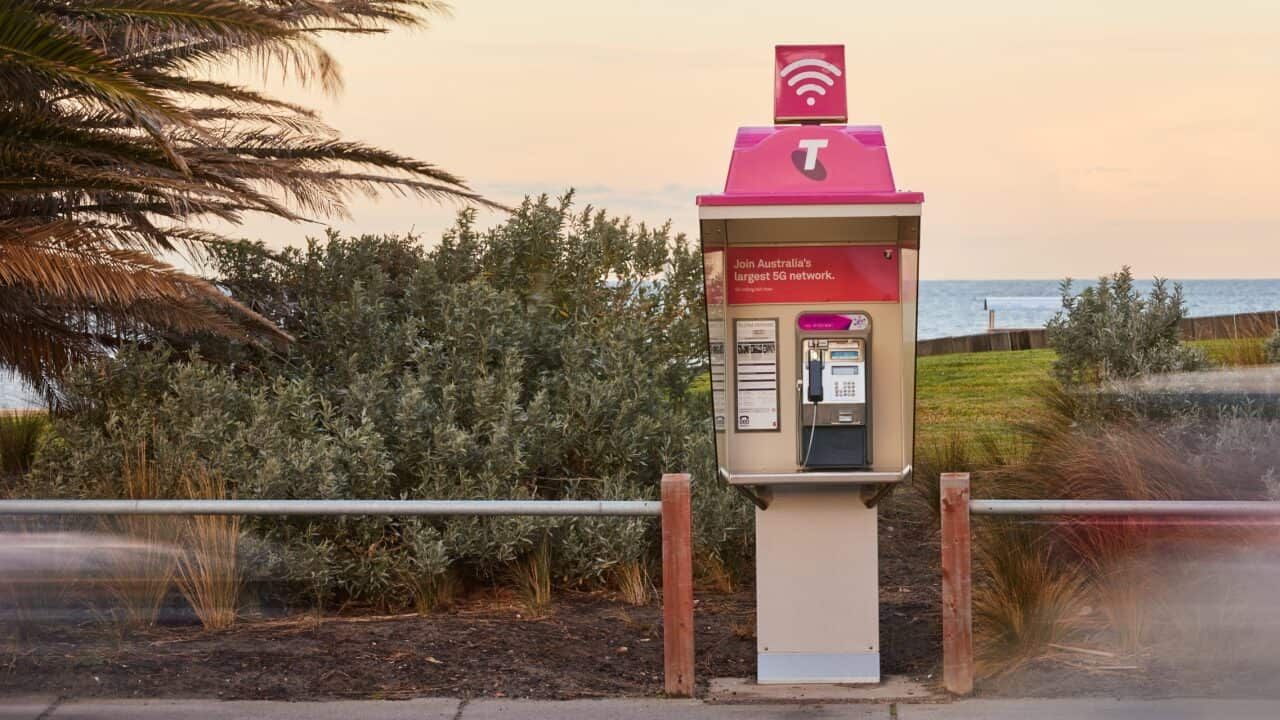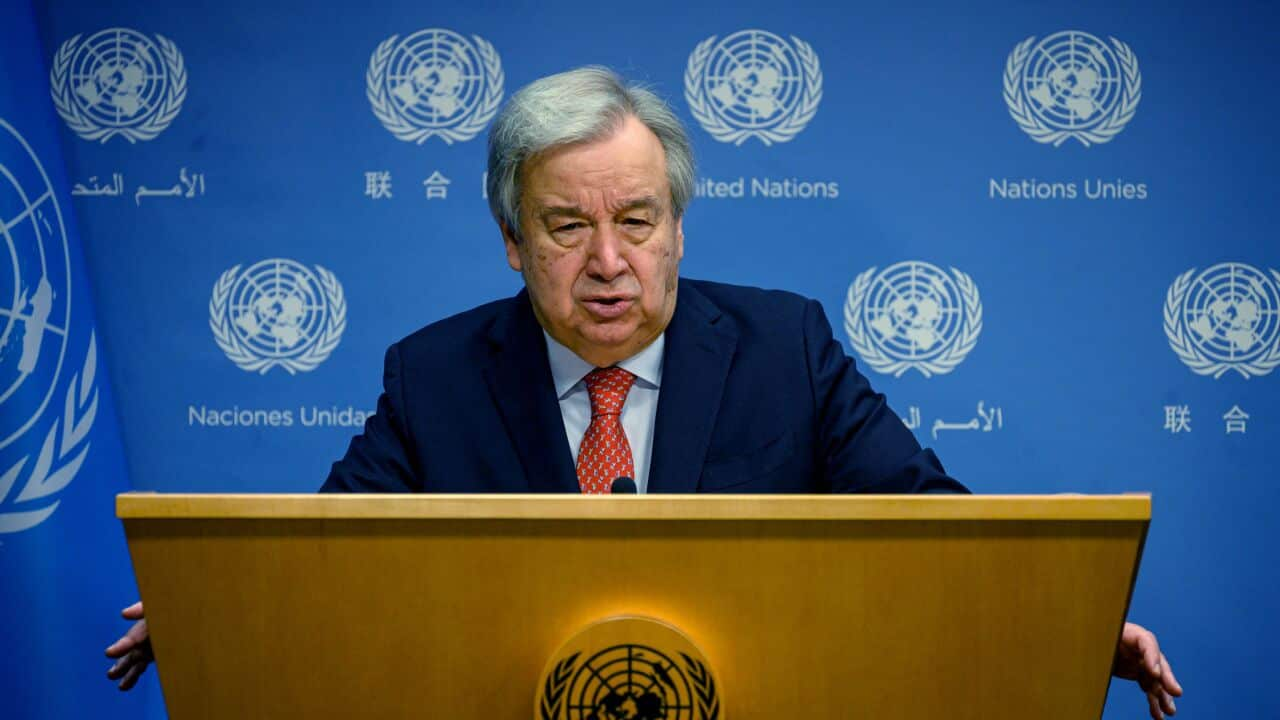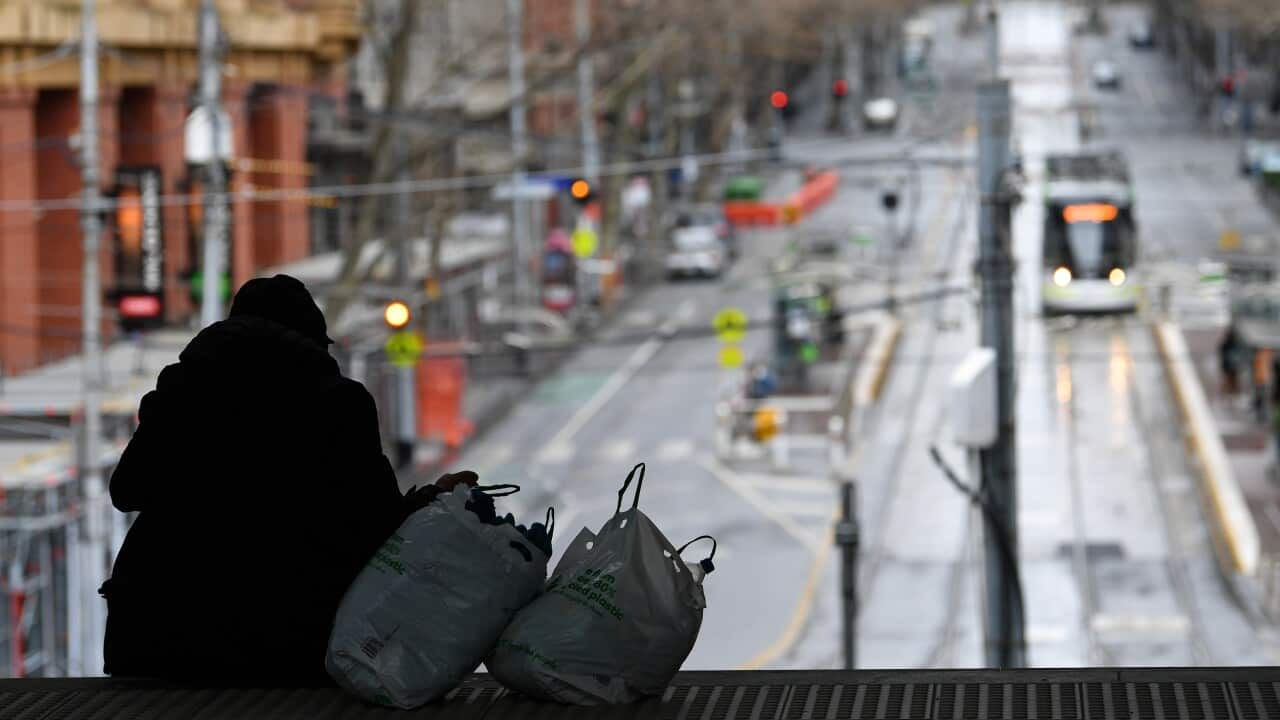Key Points
- Calls to mental health hotlines and emergency services made up a larger portion of free calls made at payphones.
- Free calls made at public payphones increased by 5 million in 12 months to June compared to the previous year.
- Advocates say the data underlines the severity of the homelessness crisis.
More than 23 million free phone calls were made at Australian public payphones in the past 12 months. Many of those calls (359,000) were made to helplines and support services like Lifeline, Headspace and the Salvation Army.
Emergency services and Centrelink's reporting line also received a large volume of calls.

The most used free public payphone in Australia in the last 12 months was in the Melbourne CBD outside a Salvation Army office. In the last 12 months, there has a large increase in calls being made to helplines and support services. Credit: Data source: Telstra
"People really depend on Telstra payphones because they're a lifeline. During the last year we've seen a surge of more than 5 million extra free calls from payphones. They [Australians] are contacting people when they're in a crisis. They are also people who are homeless who are dependent on them."
Free phone calls to domestic mobile phones and landlines can be made at 15,000 public pay phones around the country. Wi-Fi capability was added to in August last year.
Corbin says the free phone calls were initially rolled out on a trial basis during the pandemic for Indigenous remote communities to allow residents to stay in touch with each other, but it has since been extended because the need is there.
"We've seen an increase in natural disasters. Quite often when the power's out, that means that the mobile network won't stay on for more than four to 12 hours after that. If they can't get in to refuel the generators, and the batteries run out, then people rely on payphones because they're the best connection."
Australia's most used public payphone
The most used free payphone in Australia is outside a Salvation Army office in Melbourne's CBD.
The next top five payphones based on usage are in the Northern Territory, including Indigenous regional communities.
The federal minister for regional development, Kristy McBain, said the provision of free calls from payphones, particularly in regional Australia, is important.
"Across our (regional) communities, we're seeing payphones disappearing. Our communities absolutely need them. And it is fantastic to see them being provided free of charge," she told SBS News.
"The digital divide is huge between the city and the bush. Whatever we can do to assist communities access connectivity is important."
Corbin says Telstra intends to keep its network of 15,000 payphones going, including the provision of free calls, adding that a payphone may be relocated from time to time to be repositioned closer to residents.
Homelessness Australia CEO Kate Colvin says the free calls on payphones make a huge difference to the growing number of Australians seeking homelessness support - but it's also been critical to stay connected with government services.
"Increasingly, access to government services relies on you having access to a computer, being able to conduct your business online.
"And so having access to free Wi-Fi, having access to free payphones could mean the difference between people being able to access the service that they need - or being locked out of access to services."
Byron Bay sees increase in homelessness
Home to some of the world's ultra-wealthy Hollywood celebrities, Byron Bay now has the highest rate of homelessness in New South Wales. This year, the coastal town in northern NSW overtook the City of Sydney in having the in the state.

Staff at the Fletcher Street Cottage in Byron Bay say they have been stretched thin trying to respond to the growing size of the homelessness population in the town. Source: Supplied / Fletcher Street Cottage
Caseworker Maddi Powell has been helping to run Byron Bay's only homelessness support service, launched in April last year.
The organisation has been providing meals, shower facilities and other wraparound support for the town's growing homeless population. But the demand has been so overwhelming they have been forced to run an emergency appeal to keep the doors open.
"The demand has just skyrocketed. We're run off our feet. It is scary to think that we're getting busier and busier and the funding is just not there.
She says it is not surprising that an increasing number of free payphone calls were being made to find mental health and homelessness support services.
"To be sleeping on the streets and under that much stress. We are seeing rapidly declining mental health."

A community event in Dandenong has marked Homelessness Week with discussions around how to tackle the worsening crisis. Source: SBS News
Young people turned away by overwhelmed NT services
Annie Taylor, the regional co-ordinator at NT Shelter, says the peak body is hearing from member organisations about the increased demand for homelessness support, reflecting a similar pattern in payphone usage.
"What that is really showing us is that we have a crisis in this country when it comes to homelessness. People are seeking financial support from our member organisations at increasing rates. Something needs to change."
The body on Friday released a joint report with NT Children's Commissioner Nicole Hucks. The result of three years of work, the of the NT's homeless population are under the age of 25. The region already has a homelessness rate that is 12 times the national average.
"We've got 320 young people who are presenting alone to homelessness services in the Northern Territory, and are being supported by those services every day," said Annie Taylor, regional co-ordinator at NT Shelter.
"There's going to be a number of people who are also turned away because services simply don't have the capacity to support them."
The report included perspectives from almost 150 young people aged between 12 and 24. They called for youth-specific accommodation in Alice Springs, more affordable housing; and increased safe spaces and programs for young people at night to help those sleeping on the streets.
Additional reporting: Ciara Hain












